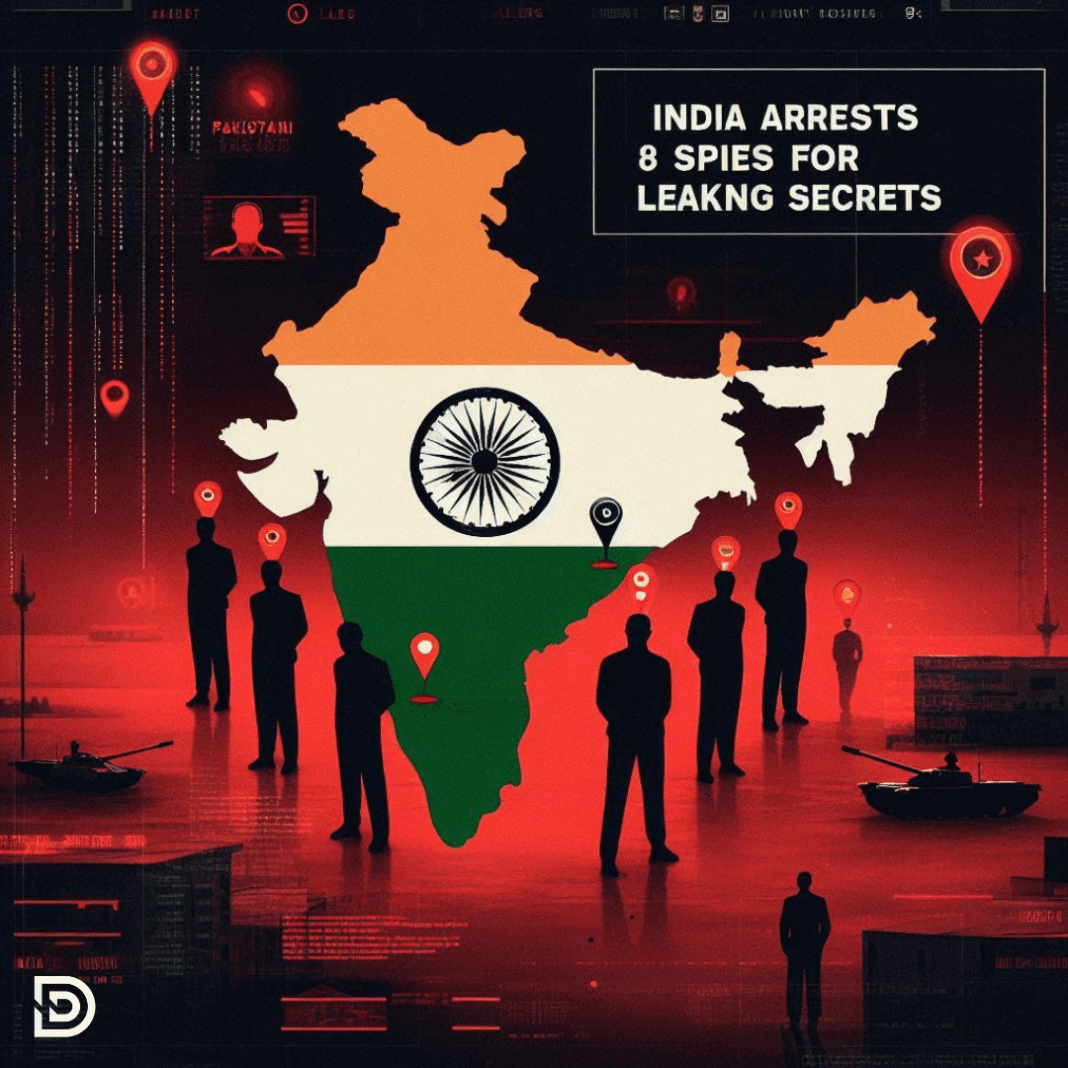India’s security agencies have moved swiftly after the Pahalgam terror attack, arresting eight people accused of passing military secrets to Pakistan.
Four arrests happened in Haryana, three in Punjab, and one in Uttar Pradesh. The list includes travel vloggers, students, a security guard, a businessman, and others who seemed like everyday citizens until investigators dug deeper. Each case shows how tempting offers of quick cash or flattery can pull ordinary people into dangerous missions.
The first name to grab headlines was Jyoti Malhotra, a 33‑year‑old travel vlogger from Hisar who runs the YouTube channel “Travel with JO.” Police say she met officials from the Pakistan High Commission, traveled to Pakistan at least twice, and began sharing information about Indian military sites. Her online fame made it easy for foreign handlers to approach her without raising suspicion.
In nearby Kaithal, Haryana Police captured Davender Singh Dhillon (also called Davender Singh), a 25‑year‑old political‑science student from Patiala’s Khalsa College. Earlier he had posted photos of pistols on social media. During questioning, officers learned he had visited Pakistan the previous November and sent photos of the Patiala cantonment to Inter‑Services Intelligence (ISI) agents.
How Ordinary Lives Hid Secret Allegiances
Another suspect, Nauman Ilahi—sometimes spelled Noman Ilahi—worked quietly as a security guard in Panipat, Haryana. He was only 24 but had already visited Pakistan four times. Investigators say Nauman kept in close contact with an ISIS‑linked handler named Iqbal Kana, calling each other “Haji Sahab” and “Janab” in coded chats. Money from Pakistan was deposited into his brother‑in‑law’s bank account in exchange for troop‑movement data that Nauman collected during the tense days after the Pahalgam attack.
Also in Haryana, police in Nuh arrested Arman, aged 23. Intelligence reports suggest Arman sent sensitive updates to his Pakistani handler while India and Pakistan exchanged hostilities this month. Officers claim to have digital proof—message logs, contact numbers, and location tags—that place him at several restricted zones.
The lone arrest in Uttar Pradesh involved Shahzad, a businessman from Rampur picked up by the state’s Special Task Force in nearby Moradabad. Though known locally for trading cosmetics, clothes, and spices, Shahzad is accused of using those trips to mask repeated visits to Pakistan. Investigators say he smuggled both goods and classified details, especially information about border‑area deployments.
Punjab witnessed three more arrests. Mohammad Murtaza Ali was nabbed in Jalandhar during a raid by Gujarat Police officers who had tracked him across state lines. They accuse him of building a custom mobile app to send encrypted files directly to ISI servers. Four mobile phones and three SIM cards were seized for forensic testing.
Alongside Murtaza, Punjab Police detained Gazala and Yamin Mohammad on similar espionage charges. While fewer details are public, officers believe both acted as couriers who relayed electronic data provided by others in the ring. Their homes were searched, and investigators collected laptops, pen drives, and notebooks mentioning border coordinates.
What Investigators Have Discovered So Far
Officers say all eight suspects were linked by a common tactic: small, believable favors that grew into major breaches. Some first shared harmless travel tips, then pictures of army trucks, and finally maps or schedules. Payments ranged from a few thousand rupees sent through digital wallets to free hotel stays during overseas trips.
Police also warn that social media influencers have become easy targets. People like Jyoti Malhotra gained trust online, posted frequent travel updates, and unknowingly revealed routes, unit names, or timings. Foreign handlers exploited that habit, slowly steering chats from casual talk to confidential queries.
Digital forensics teams are now sifting through thousands of photos, chat logs, and bank records. In Nauman Ilahi’s case, officers found screenshots of troop convoys that matched the dates of cross‑border shelling. In Davender Singh Dhillon’s seized phone, analysts uncovered saved Wi‑Fi access points inside the Patiala cantonment, a sign he planned to return for deeper spying.
No final charges have been filed yet; each suspect is under interrogation by separate state and federal agencies. Officials emphasize that the arrests highlight the hidden reach of Pakistan’s ISI and its willingness to recruit from ordinary walks of life—students, guards, business owners, and internet celebrities.
For now, all eight—Jyoti Malhotra, Davender Singh Dhillon, Nauman Ilahi, Arman, Shahzad, Mohammad Murtaza Ali, Gazala, and Yamin Mohammad—remain in custody as investigators piece together how much information was lost and who else might be involved.

